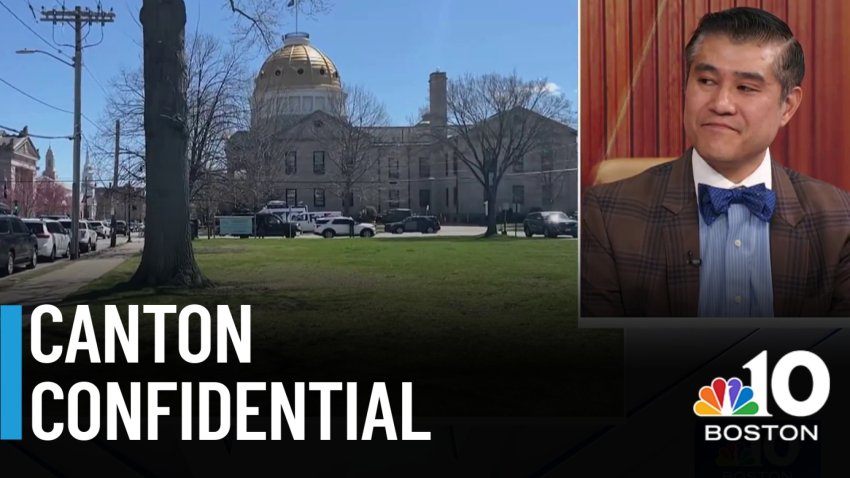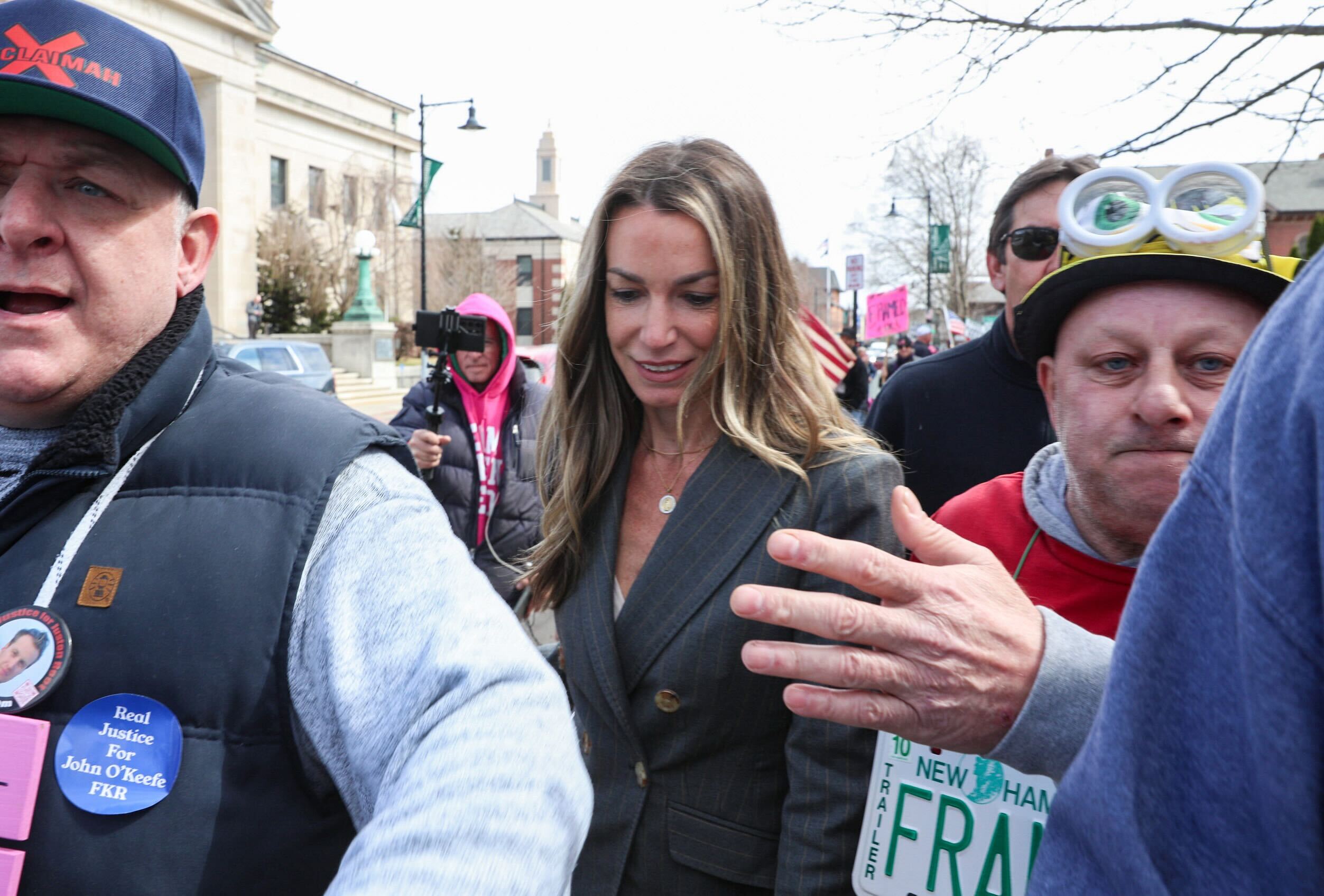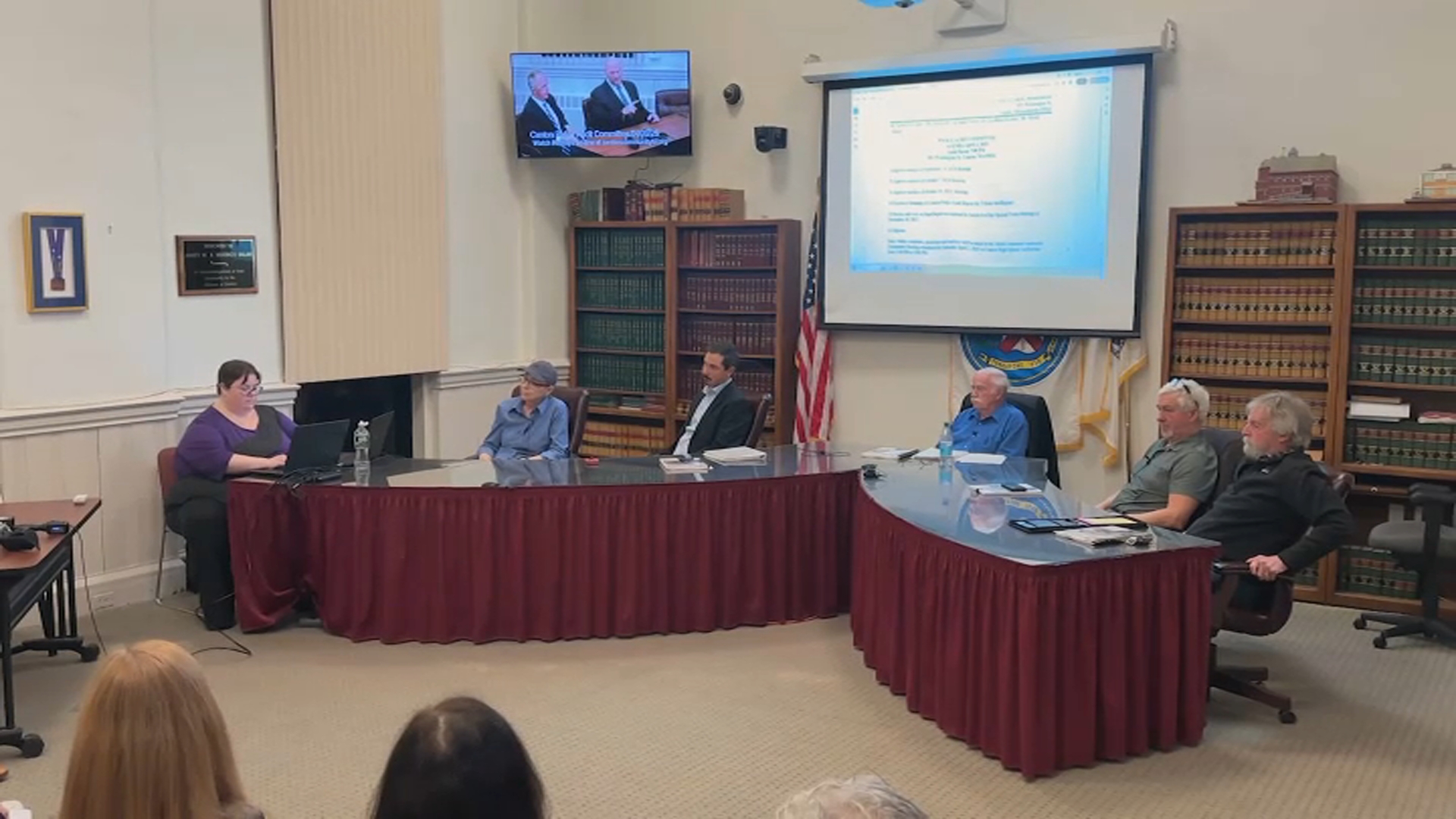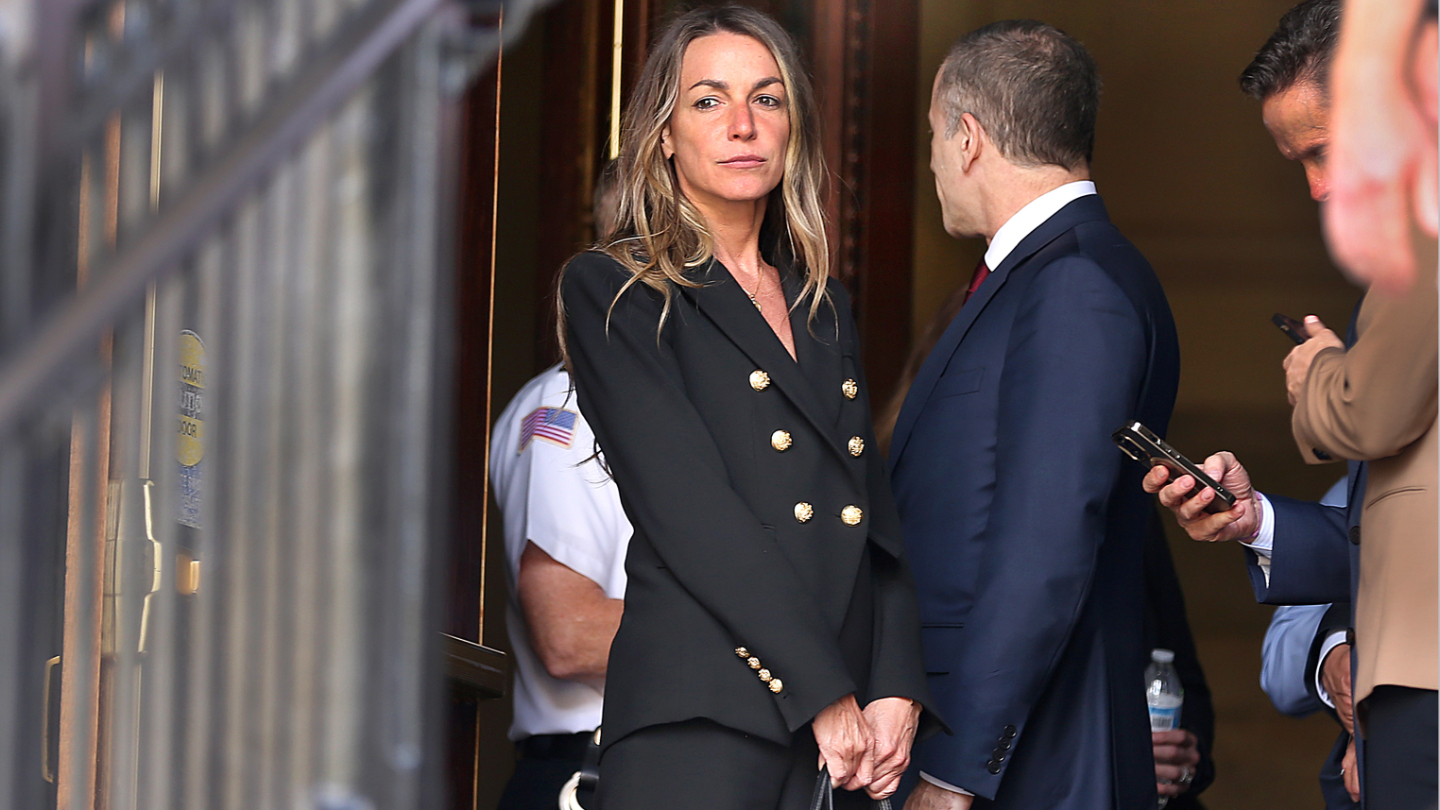A federal judge in Boston heard arguments Friday about the buffer zone around Norfolk Superior Court in Dedham.
Protesters argue in a federal lawsuit that the buffer zone outside the courthouse where Karen Read's retrial is taking place in Dedham, Massachusetts, is a violation of their First Amendment rights.
Norfolk Superior Court Judge Beverly Cannone says the presence of protesters outside the courthouse could influence jurors. She has expanded the buffer zone, which originally prohibited demonstrations within 200 feet of the court complex during last year's trial. It has been extended for the second trial to an area marked by Bates Court, Bullard Street, Ames Street and Court Street.
WATCH ANYTIME FOR FREE
Stream NBC10 Boston news for free, 24/7, wherever you are. |
Get updates on what's happening in Boston to your inbox. Sign up for our News Headlines newsletter.
Read is accused of hitting and killing Boston Police Officer John O'Keefe, her boyfriend, with her SUV in January 2022. However, her defense team claims she is the victim of a law enforcement cover-up. The case has drawn widespread media attention and the last trial featured large crowds of protesters gathered outside the courthouse each day.
Get updates on what's happening in Boston to your inbox. Sign up for our News Headlines newsletter.
"We should be able to express our First Amendment rights out there and peacefully protest, quietly," said Jason Grant, one of four people filing the lawsuit against Cannone. "We're not bothering anybody."
Protesters were a regular presence outside the courthouse during the first trial. Many of them supported Read and criticized the investigation and the criminal justice system.
"We have the right to be out there on a public sidewalk, saying what we think," said Allison Taggart, one of the plaintiffs. "We're fighting against what we believe is corruption."

A hearing took place Friday afternoon at federal court in South Boston.
The lawsuit claims Cannone is interfering with the First Amendment right to free speech.
"How the hell does a judge have the right to legislate anything outside the courthouse?" asked attorney Marc Randazza, who represents the plaintiffs.
He says there shouldn't be a buffer zone at all, but his clients are willing to compromise and keep the noise level down.
"They just want to be able to stand there with signs, quietly expressing themselves. That's what the First Amendment protects," he said. "We're willing to be reasonable."
The plaintiffs say the buffer zone is so big now they can't effectively get their message across, and the only people who can see or hear them are the residents in the neighborhood.
"There's really just a bunch of houses," said Taggart. "There's nothing there, it's just people's houses, there's people's yards. We don't want to be in front of somebody's house who's trying to enjoy their quiet."
No decision was made Friday. Both sides will continue to argue their case next Thursday back at the federal courthouse.
NBC10 Boston reached out to Cannone Friday, but she declined to comment about this lawsuit.




